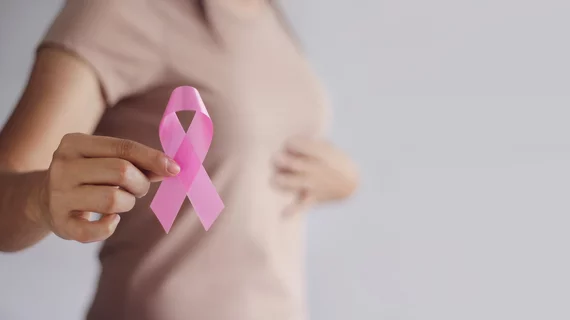Another mammography team in hot water over image quality
The FDA is notifying patients and referrers of another breast-imaging service’s slide into noncompliance with regulatory standards for image quality.
The practice is a mobile unit operated by the Medical University of South Carolina’s Hollings Cancer Center.
Informally referred to as “MUSC Hollings Cancer Center–Mobile,” the unit is presently unaccredited for breast imaging and lacking the certification needed to legally provide mammography services, FDA warned in a notice posted June 30.
The notice says problems at MUSC Hollings Cancer Center–Mobile began in September 2020 when South Carolina’s MQSA inspectors flagged quality control issues during a scheduled visit.
Next, in January 2021, the American College of Radiology notified the state that an additional review had revealed serious deficiencies with the facility’s clinical image quality.
By November 2021, the MUSC mobile unit had successfully completed corrective actions and was granted provisional certification. This allowed it to legally acquire images and so work toward accreditation reinstatement.
However, when the ACR conducted a standardized additional mammography review (AMR) process, the college deemed a number of mammograms again failed to meet ACR quality criteria.
As a result, the facility’s certificate expired on May 10, 2022, FDA reports.
More:
The facility must complete a detailed extensive Corrective Action Plan (CAP) for continued improvement, including additional personnel training and equipment evaluations, before it can submit another accreditation reinstatement application.”
The FDA’s warning on MUSC coincides with a June 30 advisory on Laurel Radiology Services in Laurel, Md.
More Coverage of MQSA-related Issues:
ACR revokes mammography facility’s accreditation after ignored records request
Radiology operation loses standing to provide mammography services
FDA sheds light on role of MQSA inspectors
FDA devising ‘phased approach’ to resuming in-person imaging site inspections
FDA switching to electronic billing for Mammography Quality Standards Act inspections
Owners of 2 clinics arrested for defrauding Medicaid, providing defective mammography services
FDA reminds mammography facilities of MQSA-related responsibilities
FDA posts advisory on importance of proper positioning during mammography
FDA Issues Safety Notification for Florida Mammography Provider

